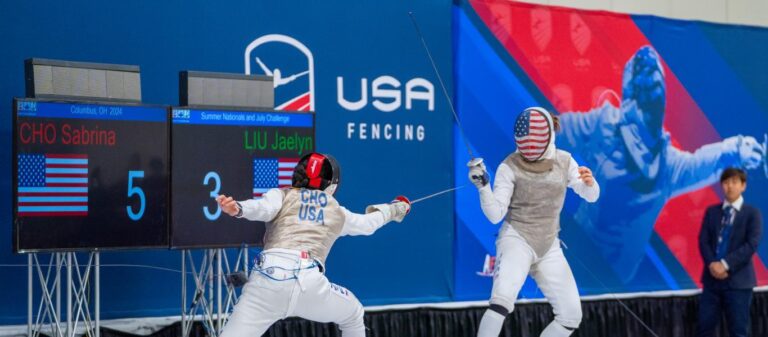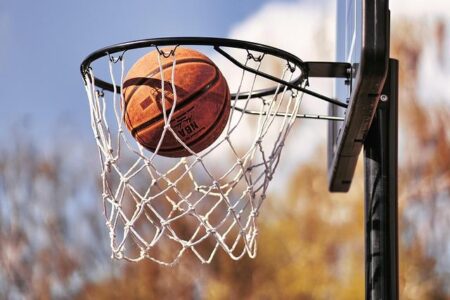USA Fencing Summer Nationals in Phoenix: A Celebration of Skill, Community, and Inclusivity
Bridging Generations: A Diverse Gathering of Fencing Talent
The recent USA Fencing Summer Nationals held in Phoenix, Arizona, served as a vibrant arena where athletes of all ages and expertise levels converged to demonstrate their mastery of speed, precision, and tactical prowess. This prestigious event highlighted fencing’s unique capacity to unite competitors ranging from young prodigies as young as 12 to seasoned masters in their seventies, illustrating the sport’s enduring appeal across generations. The tournament’s dynamic matchups offered spectators a captivating blend of youthful agility and seasoned strategic insight, reinforcing fencing’s reputation as a lifelong athletic pursuit.
The competition was thoughtfully segmented into multiple categories to accommodate varying age groups and skill levels, including:
- Junior Divisions: Focused on nurturing foundational skills and promoting fair play among younger athletes.
- Senior and Veteran Classes: Showcasing advanced techniques and strategic depth from fencers aged 50 and above.
- Mixed-Team Events: Encouraging collaboration across age groups through dynamic team competitions.
| Category | Age Range | Participants |
|---|---|---|
| Cadet (Under 17) | 13-16 | 120 |
| Junior (Under 20) | 17-19 | 95 |
| Senior | 20-49 | 150 |
| Veteran | 50+ | 60 |
Empowering the Next Generation: Community Outreach and Youth Development
Local fencing clubs and organizations leveraged the Summer Nationals as a platform to spotlight their commitment to expanding the sport’s reach among youth, particularly those from diverse and underserved communities. Through engaging workshops, mentorship programs, and hands-on demonstrations, these initiatives aim to cultivate essential skills such as discipline, strategic thinking, and physical coordination. Veteran athletes and coaches actively participated in these efforts, emphasizing fencing’s role in developing both mental acuity and athleticism.
Highlighted community programs included:
- After-school fencing clubs collaborating with Phoenix-area schools to introduce the sport to children.
- Scholarship opportunities designed to alleviate financial barriers related to equipment and training.
- Youth-focused tournaments running concurrently with the national event to foster competitive experience.
- Volunteer-led outreach sessions aimed at demystifying fencing and promoting inclusivity.
| Program | Age Group | Focus Area |
|---|---|---|
| Blade Rookies | 6-10 | Fundamental footwork and blade handling |
| Futures Team | 11-15 | Competitive skills and tactical training |
| Community Champs | All ages | Inclusive workshops and community engagement |
Training Insights from Elite Coaches: Building Champions
Veteran coaches at the Nationals emphasized that mastering consistent footwork combined with strategic mental preparation forms the cornerstone of successful fencing. Coach Elaine Thompson remarked, “Developing proficiency in fundamental movements such as advancing, retreating, and lunging equips fencers with the agility to adapt swiftly during bouts.” Beyond physical drills, mental exercises like visualization and rapid decision-making are encouraged to enhance focus and reaction times under competitive pressure.
Training regimens are typically diversified to address the nuances of the three fencing disciplines—foil, épée, and sabre—ensuring comprehensive skill development. Recommended components include:
- Daily conditioning routines targeting strength and stamina.
- Weapon-specific technical drills to refine precision and control.
- Partner sparring sessions to cultivate tactical awareness in real-time.
- Video analysis to evaluate form and strategic execution.
| Training Focus | Suggested Duration | Primary Benefit |
|---|---|---|
| Footwork Drills | 20 minutes daily | Enhanced balance and agility |
| Weapon Technique | 30 minutes daily | Improved accuracy and blade control |
| Mental Conditioning | 15 minutes daily | Sharper focus and quicker decision-making |
| Sparring | 45 minutes per session | Practical application of tactics |
Promoting Diversity and Accessibility: Initiatives to Broaden Fencing’s Reach
Organizers at the Summer Nationals underscored the critical role of inclusive programs in expanding fencing’s footprint. Efforts are underway to engage youth from marginalized communities, support adaptive fencing for athletes with disabilities, and extend outreach to rural populations where access to fencing resources is limited. These initiatives aim to cultivate a welcoming environment that embraces participants of all backgrounds and abilities.
Collaborations with schools, community centers, and grassroots organizations have been pivotal in driving these efforts forward. Key strategies include:
- Community Fencing Clinics: Offering free introductory sessions to beginners of all ages.
- Scholarship Programs: Providing financial aid to reduce economic obstacles for emerging fencers.
- Coach Diversity Training: Equipping instructors with skills to effectively support multicultural and differently-abled athletes.
| Initiative | Target Audience | Anticipated Impact |
|---|---|---|
| Community Fencing Clinics | Beginners and youth | Boosted grassroots engagement |
| Scholarship Programs | Low-income athletes | Enhanced economic inclusivity |
| Coach Diversity Training | Fencing coaches | Improved cultural competence and support |
Final Thoughts: A Growing Legacy of Excellence and Inclusion
The conclusion of the USA Fencing Summer Nationals in Phoenix reaffirmed fencing’s status as a sport that transcends age and background, uniting a diverse community of athletes and enthusiasts. From emerging talents to veteran competitors, the event celebrated fencing’s dynamic nature and its capacity to foster camaraderie and athletic achievement. With ongoing efforts to enhance accessibility and inclusivity, USA Fencing is well-positioned to nurture future generations of champions, ensuring that the Summer Nationals remain a hallmark event that honors the spirit of fencing for years to come.







